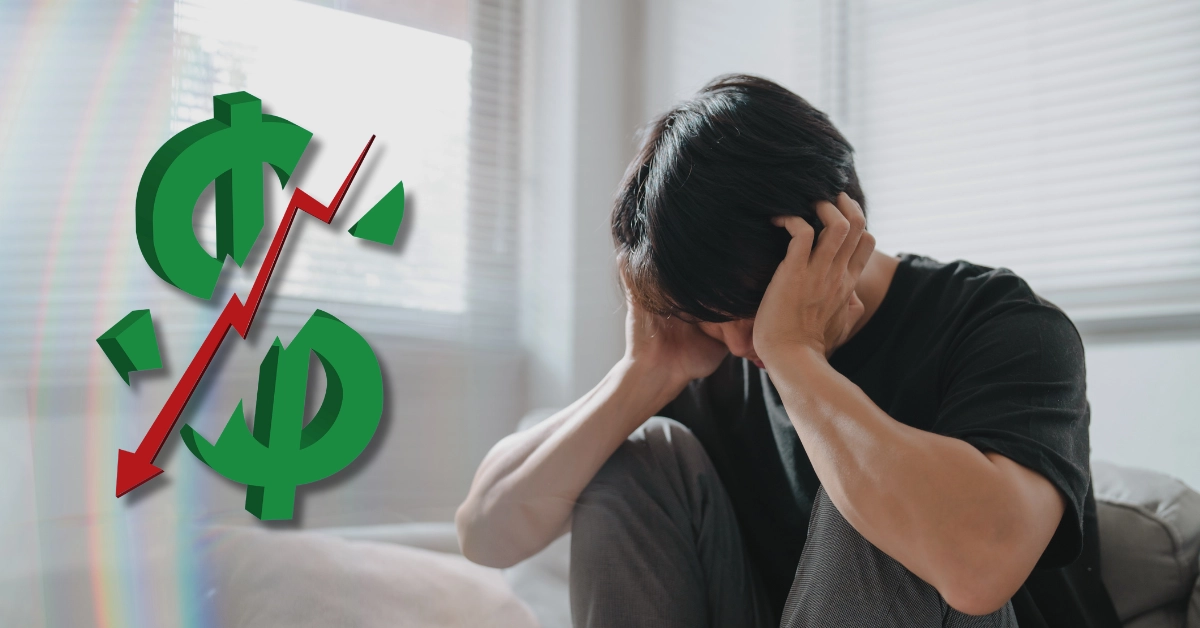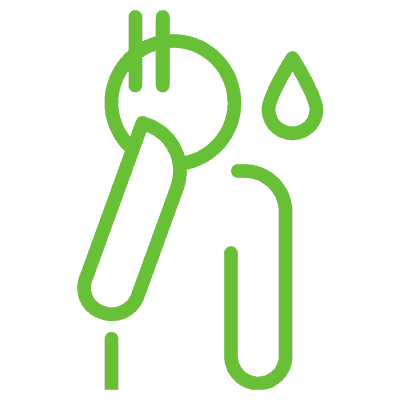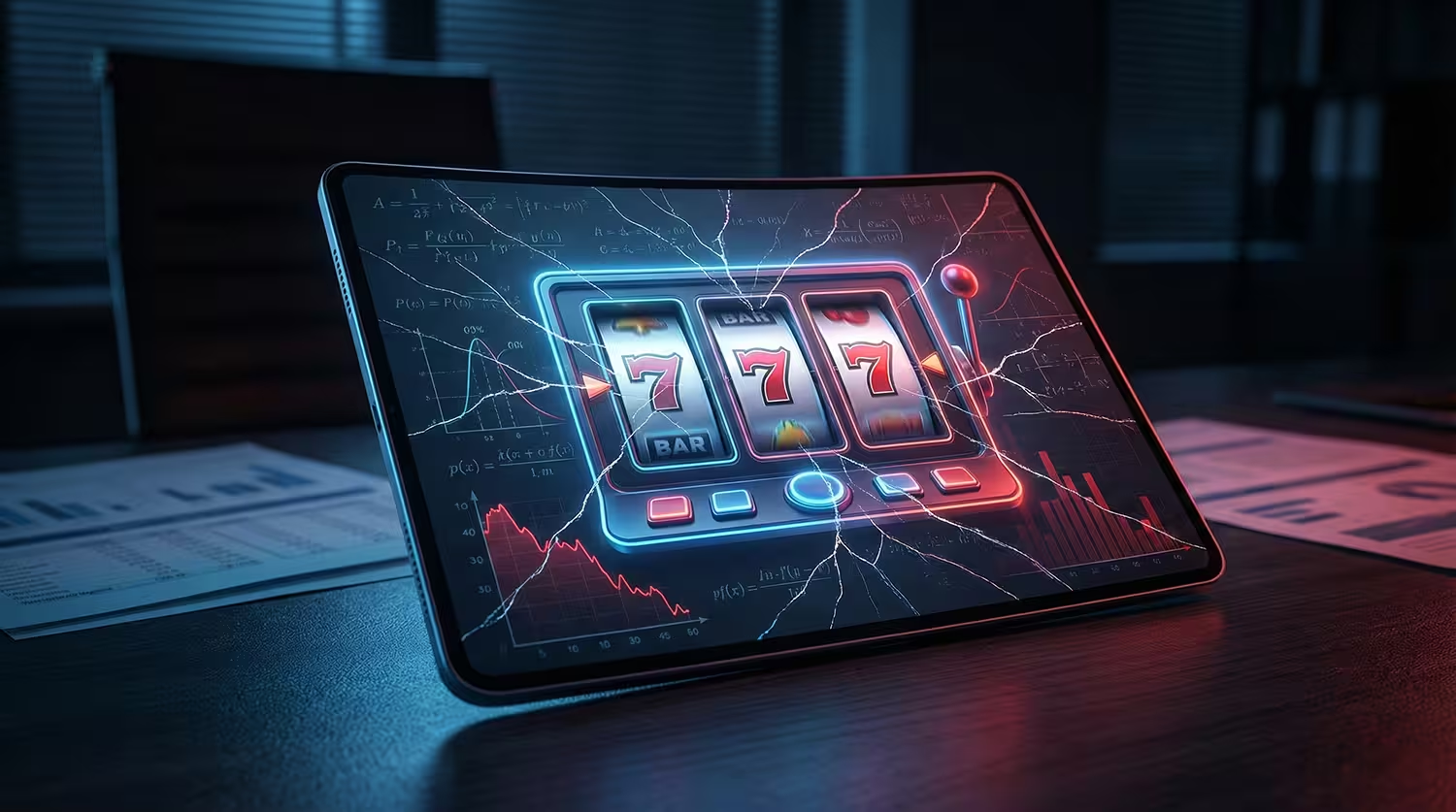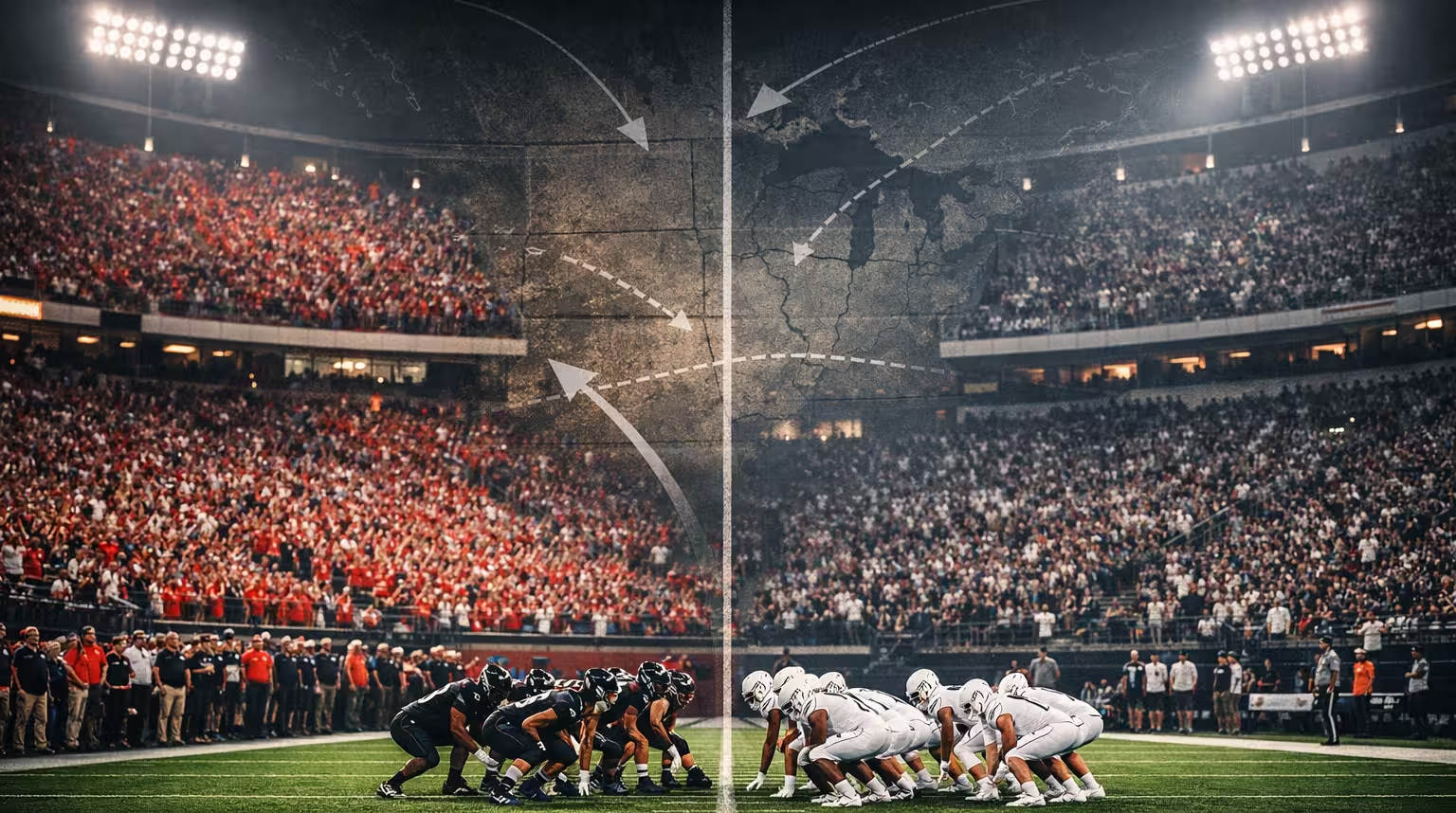Gambling and Mental Health: Understanding the Emotional Impact of Losses

Gambling is usually considered fun—a way to unwind after a long day or a grueling work week or just to add a little excitement to your life—but when the losses begin piling up, the emotional side can hit you like a ton of bricks. It’s not only the money you lose (although that’s a lot of it); it’s also the mental anguish that comes with it. The gut punch of watching your savings disappear or the sleepless nights wondering how, if you even can, bounce back, losses take a huge toll on your mind and body.
Those who gamble on a regular basis can find themselves stuck in a vicious cycle—one second; they are up in the clouds, they are high off a win, and the next? They come crashing back to earth when they lose. That kind of emotional whiplash can cause serious stress, anxiety, and depression. And it’s not only the gambler who feels these things; the ripple effect can damage relationships and cause strain at work or at home. When gambling goes from fun to chasing losses, it’s not fun anymore.
The emotional toll of gambling losses is very real, and something that we don’t think is talked about enough. Being aware of these feelings and how they impact your mental health is so important in recognizing when it’s time to reassess your gambling behavior and if you need to get help!
The Psychological Appeal of Gambling
Gambling pulls people in for reasons that go well beyond the chance of winning big. It’s a mix of excitement, risk, and the desire to escape everyday life that gives it a powerful psychological appeal. While the potential for financial gain is part of the attraction, the mental and emotional experience of gambling runs much deeper, connecting to fundamental human behaviors and desires.
At its base, gambling is all about the thrill. The unpredictability of each spin, roll, or hand fuels a sense of suspense, and that feeling is what keeps gamblers hooked. It’s not even just about winning; it’s about the possibility of winning. Gambling taps straight into the excitement and unknowns that are hardwired in our brains. The anticipation of a win releases dopamine, the brain’s feel-good chemical, creating a euphoric sensation similar to other forms of pleasure or addiction. This adrenaline rush isn’t just about the outcome; it’s about the waiting, the moments when the possibilities are endless.
For most people, it’s the rush of excitement that makes gambling so much fun! Whether you’re sitting at a poker table or pressing the button on a slot machine, it’s those few seconds when you’re waiting to see what happens next that keep you coming back for more. The excitement builds each time, creating a cycle that can be hard to break. It’s no wonder gambling is often described as an emotional rollercoaster; the highs can be incredible, but the lows can hit just as hard.
Gambling also plays into our natural tendency to weigh risks against rewards. The idea that you could turn a small bet into a big payoff is incredibly enticing. The risk makes the reward feel even more valuable. But this can also lead to some unhealthy patterns. When you’re focused on the potential for reward, it’s easy to overlook the risks, especially if you’ve just experienced a close call. A near-miss can make you feel like you’re this close to winning, pushing you to keep going, even when it’s not logical. This psychological effect, often called the “near-miss effect,” tricks your brain into believing that success is just around the corner, even though every bet is independent of the last.
This balance between risk and reward becomes especially compelling in games of chance, where gamblers can develop what’s known as the “illusion of control.” Even though outcomes are entirely random, people may convince themselves that their strategies or rituals influence the results. This belief can make losses feel more personal, and victories are even sweeter. Over time, this cycle can lead to an intense emotional investment in the game, making it hard to stop.
But when losses start to pile up, the emotional response can be overwhelming. Gamblers may feel frustrated, ashamed, or even angry, yet still push forward in hopes of recouping their losses. This is the danger of gambling’s risk-reward structure—it can turn from a fun game into a compulsion to win back what’s been lost, leading to emotional distress and financial trouble.
For some, gambling serves a purpose that is past entertainment. It becomes a way to escape from life’s challenges. Personal problems, financial stress, or emotional struggles can drive people to seek relief in gambling, where the thrill of the game distracts from their reality. While it might seem like a quick fix, this form of escapism often leads to deeper issues. When the game is over, and the losses are tallied, the stress and problems are still there—sometimes even worse than before.
Escaping into gambling can create a dangerous emotional loop. When life feels out of control, the structured world of gambling provides a sense of order, where everything depends on a bet, a spin, or a roll. But after the excitement wears off, the losses hit harder, leaving people feeling even more out of control. This is where the psychological impact can become severe, leading to increased stress, anxiety, and, in some cases, depression. It’s not uncommon for people in these situations to chase their losses, believing that one more bet will make everything right. But more often than not, it only makes things worse.
Gambling may start as a way to blow off steam, but when it becomes a regular escape from the pressures of life, it can lead to serious emotional consequences. The more someone relies on gambling as a way to cope, the harder it becomes to break the cycle, especially as the financial and emotional toll continues to build.
In many ways, the psychological appeal of gambling is tied to our deepest desires and emotions—thrill, risk, and escape. But these same factors can make it dangerous, especially when the lines between fun and compulsion begin to blur. Understanding the pull of gambling can help people recognize when they’ve crossed that line and take steps to regain control.
The Immediate Emotional Impact of Losses
Gambling can feel like a high-stakes adventure when things go your way, but the emotional fallout is undeniable once the losses start coming. Losing isn’t just about watching money slip away—it stirs up deep feelings of disappointment, anger, guilt, and sometimes shame that can linger long after the game ends. It’s the kind of emotional weight that sticks with you, and for many, these feelings can be harder to shake off than the financial losses themselves.

Feelings of Disappointment and Frustration
Disappointment is the first emotion most people feel after a loss. When you’re caught up in the game, there’s always that hope, however small, that maybe this time will be different. You might know that gambling is a long shot, but it hits hard when the outcome isn’t what you hoped for. It’s not just about the money; it’s about the emotional investment you’ve made, the anticipation and the excitement that gets dashed in an instant.
This disappointment often turns into frustration, especially when you feel like you’ve been making smart decisions, yet things still don’t go your way. You might start replaying every move, thinking, “If only I had done this differently,” or “What if I hadn’t placed that last bet?” It’s like your mind can’t help but second-guess everything, trying to find a way to rationalize what happened. This sense of frustration can make it difficult to let go and move on from the loss.

Anger and Guilt
For some, disappointment quickly evolves into anger. There’s a natural tendency to blame yourself, thinking you should have known better or that you should have stopped while you were ahead. That anger is often directed inward, with thoughts like, “Why didn’t I quit when I had the chance?” or “I can’t believe I made such a dumb mistake.” It’s a harsh self-criticism that can be difficult to shake off.
But anger can also be external. It’s not uncommon for gamblers to get mad at the game, the dealer, or even other players. Anything that makes you feel like you lost unfairly can be a trigger for this anger. And if losses pile up, that frustration often turns into guilt. You start to think about the money you’ve lost—not just what it means for you personally, but what it might mean for others around you. Maybe the money was supposed to go toward something important, or maybe you promised yourself (or someone else) that you wouldn’t spend so much. The guilt over breaking that promise, whether to yourself or others, can be a heavy burden.

Shame and Embarrassment
Shame begins to sneak in when losses start to add up, especially when they affect more than just your bank account. For many, gambling is a private activity, something they do without broadcasting to the world. But when the losses become too much, the fear of others finding out can lead to deep feelings of shame. You might feel embarrassed that you’ve let it go this far or that you’ve lost control in a way you never thought you would.
This shame is particularly painful when it starts to impact your relationships. Maybe you’ve kept the extent of your gambling hidden from loved ones, or maybe they’ve started to notice that something isn’t quite right. The idea of having to explain your actions, or worse, confessing to losing more than you could afford, can feel humiliating. Shame and embarrassment often lead people to withdraw, avoiding conversations or situations where they might have to confront the truth about their losses. This isolation can make the emotional toll even harder to bear.
Some gamblers also feel a sense of embarrassment about their perceived lack of self-control. You might think, “How did I let it get this far?” or “What will people think of me?” These thoughts can make it difficult to seek help, especially when gambling losses have caused real financial or personal damage. The fear of judgment from yourself or others compounds these feelings of shame, creating a cycle that’s hard to break free from.
The emotions tied to gambling losses—disappointment, frustration, anger, guilt, and shame—are deeply personal. These feelings don’t just disappear when the game ends; they can linger, affecting how you see yourself and how you interact with others. The emotional aftermath of a loss can weigh heavily, making it important to recognize and address these feelings before they lead to bigger problems.
Long-Term Effects of Gambling Losses on Mental Health
The toll isn’t relegated to financial harm when someone gambles over an extended period and racks up big monetary losses. The emotional and mental fallout can be devastating and long-lasting. Anxiety, depression, financial stress, and isolation can pile up, making recovery feel out of reach. Below, we dive into how these long-term effects play out IRL.
Anxiety and Depression
Repeated gambling losses have a profound effect on mental health, especially when gambling becomes a way of managing life’s stressors. Many people initially gamble for the excitement, but when losses stack up, the adrenaline rush fades, and what’s left is a harsh emotional reality. Over time, people can develop anxiety or depression due to the constant stress of gambling-related worries.

Anxiety can come from many angles. It could stem from fear about how to cover everyday expenses after losing large sums, the dread of confronting a partner or family about finances, or the overwhelming feeling of being stuck in a downward spiral. Research by UCLA Health shows that gambling activates the brain’s reward system in a way similar to substances like cocaine and nicotine, which makes walking away from gambling difficult even as the emotional costs rise.
The same study points out that gambling isn’t just an entertainment issue; it becomes a coping mechanism for dealing with other life challenges. Unfortunately, using gambling as a way to manage stress or emotions can make things worse. The more you gamble, the greater the risk of falling into anxiety and depression as financial and emotional pressures mount. For many people, these emotions become part of a vicious cycle—gambling to escape the pain, only to feel worse after another loss.
Financial Stress and Its Psychological Impact
Financial stress is one of gambling losses’ most immediate and brutal consequences. For most people, gambling starts as a way to “win big,” but what happens when you start losing more than you can afford? According to a study published in the Current Opinion in Behavioral Sciences, the stress of financial losses not only weighs on the individual but also creates a cycle of stress that only worsens the problem. The researchers found that financial stress could push people to gamble even more in a desperate attempt to recover losses, only to worsen their financial troubles.

This stress has real-life consequences. A person may start missing bill payments, borrow money to keep gambling, or rack up credit card debt. Each loss adds more pressure, making it difficult to see a way out. The stress from these financial struggles doesn’t stay in isolation; it creeps into other parts of life, straining relationships, affecting job performance, and even causing physical symptoms like headaches, trouble sleeping, or stomach issues. Some gamblers might try to hide their debts, weaving a tangled web of lies and secrets that only intensify the stress.
As Dr. Timothy Fong from UCLA’s Gambling Studies Program explained, gambling debt can lead to long-term physical and psychological effects. He notes that many gamblers develop insomnia and other health problems, as their financial stress keeps them up at night, replaying the losses in their minds. The emotional exhaustion from juggling these worries and the constant fear of losing everything can feel unbearable .
Isolation and Social Withdrawal
A painful emotional consequence of gambling is the sense of isolation that comes along with it. Many gamblers begin withdrawing from friends and family, partly out of shame and partly to avoid confronting the damage they’ve done. According to research by the Addiction Group, the feeling of remorse after losing is common, but it doesn’t stop people from gambling. Many feel ashamed and try to hide their habit, which distances them from loved ones.

Social withdrawal is also a coping mechanism. When gamblers isolate themselves, it’s often to avoid the judgment of those closest to them. They might avoid gatherings where they’ll be asked about their finances or make excuses for their behavior to keep their loved ones at a distance. This isolation can become a self-perpetuating problem: the more someone feels alone, the deeper they might go into gambling to fill the emotional void, creating an even wider rift between themselves and others .
The UCLA study also highlights how financial stress can further isolate people. The stress of hiding debts or lying about how much was lost can make it easier to avoid social interactions altogether. Some people fear the shame of others finding out about their financial problems or the emotional impact their gambling has had on their families.
Over time, this isolation and withdrawal can have serious mental health implications, exacerbating depression and anxiety. Relationships crumble under the weight of secrecy, and the support networks that could have helped become unavailable because of the emotional and physical distance created by the gambler’s behavior.
These long-term effects on mental health are profound. Anxiety, depression, financial stress, and social withdrawal don’t just disappear once gambling stops. They linger, requiring deep emotional work and, in many cases, professional help to address fully.
Recognizing Problem Gambling Behavior
Gambling always starts out as an innocent hobby, but over time, it can turn into something far more damaging, especially when it begins affecting your mental health, relationships, and finances! If you recognize that gambling is becoming a problem and can intervene early, it can help stop things from getting even worse. Below is how you can spot the signs that your gambling is problematic and know when it’s time to reach out for help.
Signs of Problem Gambling
There are more signs, but below are the most common 15 red flags that indicate gambling is taking a toll on your mental health and your life:
- Preoccupation with gambling: You’re always thinking about gambling, planning your next bet, or thinking about your past wins.
- Chasing losses: After losing money, you keep gambling in an attempt to win it back, even though this rarely, if ever, works out.
- Increased risk-taking: You find yourself needing to bet larger amounts of money to feel the same excitement.
- Lying about gambling: You start hiding your gambling activities from friends, family, or co-workers.
- Using gambling as an escape: You gamble to avoid stress, anxiety, or any other emotional problems.
- Restlessness when trying to cut back: When you attempt to stop or reduce gambling, you feel irritable or anxious.
- Neglecting responsibilities: You start skipping work, missing family events, or avoiding important duties so you can gamble instead.
- Borrowing money: You start asking friends or family to lend you money because you’ve lost too much gambling.
- Selling possessions: Valuables start disappearing because you’ve sold them to fund your gambling habit.
- Financial troubles: Bills go unpaid, and debt racks up as gambling drains your financial resources.
- Relationship issues: Arguments and trust issues arise due to your gambling behavior, especially when you’re lying or hiding the real truth about how bad it’s gotten.
- Job performance suffers: You lose focus at work, perform poorly, or take unnecessary time off because of your gambling.
- Mood swings: Your emotions are linked to gambling, with extreme highs after a win and low lows after a loss.
- Feeling guilty or remorseful: Even if you win, the guilt and shame from gambling stick around.
- Withdrawal from social activities: You isolate yourself, avoiding social events to gamble or because you feel shame about your behavior.
Behavioral Changes
The first noticeable shift when gambling starts becoming a problem is in behavior.
- Gamblers might develop a short temper or become easily irritated when they can’t gamble. There’s a noticeable shift in how they prioritize their time and energy, often leading them to neglect responsibilities at work or home. Family members and friends might notice a growing obsession with betting, which can take precedence over important life events and obligations.
- As someone becomes more entrenched in gambling, they may start rationalizing their losses. This is referred to as “chasing losses,” where gamblers believe that just one more bet will fix everything. It’s a dangerous mindset that leads people deeper into financial and emotional distress.
- Compulsive gamblers might even develop superstitious or illogical beliefs about gambling, such as thinking that a certain machine is “due” for a win or that they are able to foresee results by using previous patterns.
- Another major shift is avoidance. Whether it’s ignoring bills, avoiding work, or pulling away from friends and family, problem gamblers tend to dodge anything that takes them away from their obsession.
- Their emotional volatility can also increase, with mood swings that vary depending on their gambling outcomes. This volatility doesn’t just impact the gambler; it can lead to serious strain on their personal relationships as well.
Seeking Help and Self-Reflection
If gambling starts to feel like more than just a casual activity, it’s crucial to take a step back and reflect on how it’s affecting your life.
Are you constantly worried about money? Do you feel guilty or anxious when you think about your gambling habits? These are red flags that gambling is impacting your emotional well-being and financial stability.
Acknowledging that gambling has become a problem is the first step toward change. It might feel overwhelming, but reaching out for help—whether through a therapist, support groups like Gamblers Anonymous, or talking to someone you trust—can make a world of difference. Self-reflection can also help you recognize patterns and triggers, making it easier to take steps toward healthier coping mechanisms.
Coping with the Emotional Impact of Gambling Losses
Losing at gambling doesn’t just drain your wallet; it can take a real toll on your emotional well-being. Those losses can stir up feelings of regret, frustration, and even shame. While it’s easy to feel stuck in that place, there are healthier ways to manage those emotions and rebuild your peace of mind. Here are some helpful strategies for dealing with the emotional fallout from gambling losses.
Healthy Coping Mechanisms
Finding healthier ways to handle the emotional aftermath of gambling losses is key. Whether it’s taking a break, practicing mindfulness, or engaging in new hobbies, these strategies can help you process those tough emotions and refocus your energy on more positive outlets.
When gambling losses start to weigh on you, one of the most important things you can do is pause. Take a break from gambling entirely, and give yourself space to clear your head. This isn’t just about stopping gambling; it’s about redirecting your energy toward healthier, more fulfilling activities. Engage in a hobby you love or spend time with people who support you. It helps to step away from the temptation and reset your mindset .
Learning to sit with difficult emotions instead of acting on them can make a big difference. Practices like mindfulness meditation, deep breathing, or yoga can help calm your mind and body, making it easier to cope with the stress and tension that come with losses. These techniques can shift your focus away from frustration and help you gain clarity. If you’re new to meditation, try apps like Headspace or Insight Timer.
Filling your time by doing things that bring you happiness or a sense of accomplishment can really help to stifle the urge to gamble. Try doing something creative! Maybe you like to paint, write, or cook. Any kind of physical activity like running, playing tennis, pickleball, swimming, or any exercise also serves as a great distraction–and it can also lift your mood! You just want to find healthy outlets that give you the same sense of fulfillment that you sought out in gambling.
One of the toughest parts about gambling is accepting the losses. You can’t undo them, but you can choose how you respond. Instead of spiraling into regret, try reframing those losses as a learning experience. It’s not about ignoring the pain but acknowledging it as part of the process to help you make better choices moving forward.
Getting Professional Help
When the emotional toll of gambling becomes too much to bear alone, reaching out to a therapist or joining support groups like Gamblers Anonymous will give you the guidance and support that is needed to navigate recovery. Professional counseling can also help address any underlying issues like anxiety or depression, which could be fueling gambling behaviors.
Talking to a professional can help when coping with the emotional stress that gambling brings. Cognitive Behavioral Therapy (CBT) is a proven effective method in tackling the thought patterns that drive gambling behaviors. It can help you identify the triggers that push you to gamble and teach you better ways to cope with stress and disappointment. Therapists can also help address any underlying issues, like anxiety or depression, that might fuel the gambling problem.
It’s easy to feel alone in your struggles, but support groups like Gamblers Anonymous (GA) can make a huge difference. Being part of a group where people understand exactly what you’re going through will give you much-needed emotional support, reduce isolation, and give you practical tools to manage your gambling habits. There’s something really powerful about connecting with others who have been in your shoes.
Sometimes, the financial stress from gambling can create more anxiety than the losses themselves. Financial counselors can work with you to build a plan for you to pay down debts, build savings, and manage money responsibly moving forward. Setting clear financial goals can give you a sense of control again . It also takes away some of the pressure that often drives people to keep gambling in the first place.
Setting Limits and Creating Boundaries
Setting strict financial and emotional boundaries around gambling can make all the difference. Creating a budget, limiting the time you spend gambling, and avoiding high-stress situations can support you in taking back control and preventing further losses.
A good way to prevent gambling from getting out of hand is to set strict financial limits before you start gaming. The goal here isn’t to quit cold turkey–it’s to create a reasonable budget that only uses money that you can afford to lose. Keep your gambling money separate from your everyday finances so it’s easier to stick to your limits. You can even use tools like betting limits offered by all reputable online gambling sites.
In addition to setting a money limit, setting a time limit is just as important! Allocate specific time slots for gambling and shut it down when the time is up. This tactic will decrease the emotional pressure that builds when you spend too many hours chasing wins or furthering losses. Think about scheduling time for other hobbies or social events in order to distract yourself from the urge to keep gambling.
Stress can be a big trigger for gambling, so it’s mandatory to recognize when you’re feeling particularly vulnerable. Do not gamble when you’re feeling stressed, anxious, or down in the dumps. Try to identify what exactly triggers your gambling behavior and try to avoid those situations. It could mean staying away from certain locations, like casinos or online gambling sites, or refraining from seeing the people who encourage you to gamble.
If you’re finding it hard to stick to limits, all legitimate casinos and online gambling sites have self-exclusion programs that let you block yourself from gambling for a certain period of time. This gives you a solid barrier when your willpower is wearing thin, and it is a good way to make a hard boundary for yourself and reduce the temptation to gamble.
Managing the emotional and psychological effects of gambling losses takes a lot of effort, but you don’t have to do it alone! With the right strategies in place and the willingness to get help when needed, you can regain control over your emotions and financial well-being.
Conclusion
Gambling losses don’t just affect your bank balance—they can leave you feeling guilty, frustrated, and emotionally drained. When these feelings start spilling over into your everyday life, impacting your mood and relationships, it’s a clear sign that gambling is no longer just a harmless activity.
Recognizing this shift is key. Reaching out to a therapist, joining a support group, or even just talking to someone you trust can be really helpful in managing these emotions. It’s also important to set some boundaries around gambling, whether that means setting strict limits on how much you spend or finding new ways to cope with stress.
Taking care of your mental health is so important, and being aware of how gambling affects you emotionally can help you make positive changes before things get out of control!
FAQs Section
We covered a lot of ground regarding gambling and mental health, so below is a TL;DR of the most frequently asked questions we’ve gotten from our readers on this important topic!
How Do Gambling Losses Affect Mental Health?
Gambling losses can mess with your mental health in unexpected ways. When you lose, it’s not just about the money—it’s the emotional fallout that hits harder. Many gamblers experience deep frustration, guilt, and even anxiety as they try to make sense of their losses. This could ultimately end up with severe problems like chronic stress, depression, and low self-esteem. As gambling becomes more of an escape from stress or problems, it often ends up compounding them, creating a vicious cycle that’s tough to get out from under.
What are Some Common Emotional Responses to Losing Money While Gambling?
– Frustration: It’s totally normal to feel like you’ve been cheated, especially when you were so close to winning. This can cause a sense of helplessness and turn into resentment.
– Guilt: After losing more than planned, a lot of people will feel deep regret, especially if they’ve spent money that they needed for bills or family.
– Shame: Losing can make you feel embarrassed, especially if you’ve been lying about how much you gamble or if it’s affecting your loved ones.
– Anger: Whether it is directed at yourself, others, or the game itself, anger is a super common reaction to repeated losses.
How Can I Cope with Gambling Losses in a Healthy Way?
– Take a break from gambling: When losses are piling up, the best thing you can do is hit pause. Walk away and give yourself some space to clear your head.
– Practice mindfulness: Meditation or even just deep breathing exercises can help ground you when the stress gets too much. Apps like Calm or Headspace are really great tools to help manage anxiety.
– Find a new hobby: Pour your energy into something that feels rewarding and isn’t financially risky. It could be anything from joining a sports team, hanging out with friends, doing a jigsaw puzzle, or taking up a new hobby you’ve always wanted to try!
– Talk to someone you trust: Talking to a close friend, a trustworthy family member, or maybe even a professional about your gambling struggles can really help lighten the emotional load you’re carrying. You don’t have to carry it alone, and you shouldn’t!
What are Some Signs That Gambling is Negatively Affecting My Mental Health?
– Obsessing over gambling: If it’s on your mind constantly—whether you’re planning when you can gamble again or thinking about how you can win back your losses—it’s time to take a break and think about how it’s affecting you.
– Chasing losses: One of the most obvious signs is an effort to get back what was lost. It never works and can just push you into a deeper hole than you’ve already dug for yourself.
– Lying or hiding your gambling: If you find yourself covering up how much you’re spending, or lying to friends or family, that’s a huge warning sign.
– Feeling anxious or irritable when you can’t gamble: These emotions are a flashing sign that your relationship with gambling is already unhealthy.
Where Can I Get Help for Problem Gambling?
There are plenty of places to turn to if and when you realize that gambling is taking over your life:
– Gamblers Anonymous (GA): They offer meetings where you can connect with others who’ve been through the same struggles and can provide real-life support.
– National Problem Gambling Helpline: A confidential service where you can get help and resources at any time by calling 1-800-522-4700.
– Financial counseling: Sometimes, the stress of gambling is as much about the money as it is about the emotions. A financial counselor can help you get back on track, set up a plan to deal with debts and regain control over your finances.
– Therapists or counselors: Professionals specializing in cognitive behavioral therapy (CBT) assist in identifying and modifying thought patterns that drive your gambling behavior.
Below are additional resources for anyone that is looking for support with gambling problems:
– BetterHelp Online Therapy: An online platform that has licensed therapists, including those who specialize in gambling-related issues.
– Gambling Therapy: Has online advice, forums, and text support for anyone affected by problem gambling.
– Financial Counseling: Gives credit and debt counseling to help manage financial challenges stemming from gambling losses.
– Cognitive Behavioral Therapy Resources: Information on therapists specializing in CBT, effective in treating gambling disorders.
– Gam-Anon: A support group specifically for families and friends of problem gamblers.
– Self-Exclusion Programs: Programs allowing individuals to exclude themselves from gambling environments and online platforms voluntarily.
– SMART Recovery: Has meetings and resources for those dealing with addictive behaviors, including gambling, with a concentration on self-empowerment.
– National Council on Problem Gambling (NCPG): Has info on local resources, including treatment options and helplines.

Alyssa contributes sportsbook/online casino reviews, but she also stays on top of any industry news, precisely that of the sports betting market. She’s been an avid sports bettor for many years and has experienced success in growing her bankroll by striking when the iron was hot. In particular, she loves betting on football and basketball at the professional and college levels.








